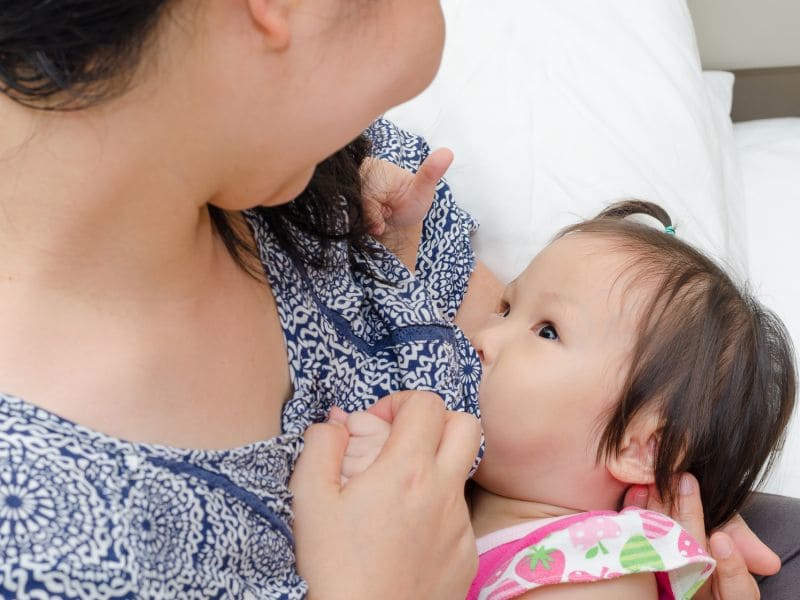MONDAY, July 30, 2018 (HealthDay News) — Sorry, new moms, although you’ve already waited at least nine months, it’s not time for a glass of wine just yet: New research suggests it might be best for baby’s brain to wait until you’ve stopped breast-feeding.
That’s because exposure to alcohol in breast milk was linked to a reduction in thinking and reasoning skills when kids were tested at ages 6 and 7.
The effect might not be lasting, however. When the children were retested between 10 and 11 years old, the link was no longer apparent.
The Australian researchers also noted that smoking while breast-feeding didn’t seem to effect youngsters’ thinking and reasoning abilities.
“The more alcohol women drank, or the riskier their drinking patterns — binge drinking — while breast-feeding, then the lower the child’s abstract reasoning ability at age 6 to 7 years,” said study author Louisa Gibson, a doctoral student in neuropsychology at Macquarie University in Sydney.
It’s important to note that while the study found an association, it didn’t prove a cause-and-effect relationship.
However, Gibson said there was no decline in thinking and reasoning skills seen in children of mothers who consumed alcohol but didn’t breast-feed.
“This lack of association in babies who had never been breast-fed suggests that the reduction in [thinking and reasoning] abilities was a direct result of the alcohol in the breast milk, and not because of other social aspects related to drinking,” she explained.
Dr. Michael Grosso, chair of pediatrics at Northwell Health’s Huntington Hospital in Huntington, N.Y., said the findings should still be interpreted cautiously, “as the association between the risk factor and the outcome may be the result of something unmeasured.”
Still, he said, avoiding alcohol while breast-feeding is likely the safest option for babies.
Gibson agreed. “The safest option is to abstain from alcohol completely during both pregnancy and breast-feeding. This study suggests that there is no safe level of alcohol consumption, with every extra drink causing a little bit more harm,” she said.
Gibson pointed out that while the study didn’t find an effect from tobacco use while breast-feeding, she said it might just be that this study wasn’t able to capture those effects.
She said she suspects smoking probably has some detrimental effects during breast-feeding, as there’s evidence that it does in pregnancy. She also suggests abstaining from smoking while breast-feeding.
The study included more than 5,000 babies and mothers from Australia. They were recruited in 2004. The researchers conducted assessments of the children every two years.
Gibson said there are a number of factors that could explain how alcohol while breast-feeding could affect a child’s reasoning skills many years later.
One may be that alcohol may directly damage brain cells. Another is that alcohol may somehow change the nutritional content of breast milk, causing an early nutritional deficiency. Another is that alcohol in breast milk may affect the feeding and sleeping patterns of a baby, which could affect the infant’s environmental stimulation, Gibson suggested.
Dr. Ron Marino, associate chair of pediatrics at NYU Winthrop Hospital in Mineola, N.Y., said that infancy is a time when the brain’s synapses — the connections between brain nerve cells — are forming at a remarkable rate.
“The human brain is an extremely active organ in both prenatal and early postnatal life,” he said.
Previous studies have also shown that exposure to alcohol or tobacco smoke during this time can have a negative impact, he added.
“The take-home message is quite clear: Do not smoke and avoid alcohol while breast-feeding,” Marino said.
The study was published online July 30 in the journal Pediatrics.
More information
The U.S. Centers for Disease Control and Prevention has more about alcohol and breast-feeding.
Copyright © 2026 HealthDay. All rights reserved.

